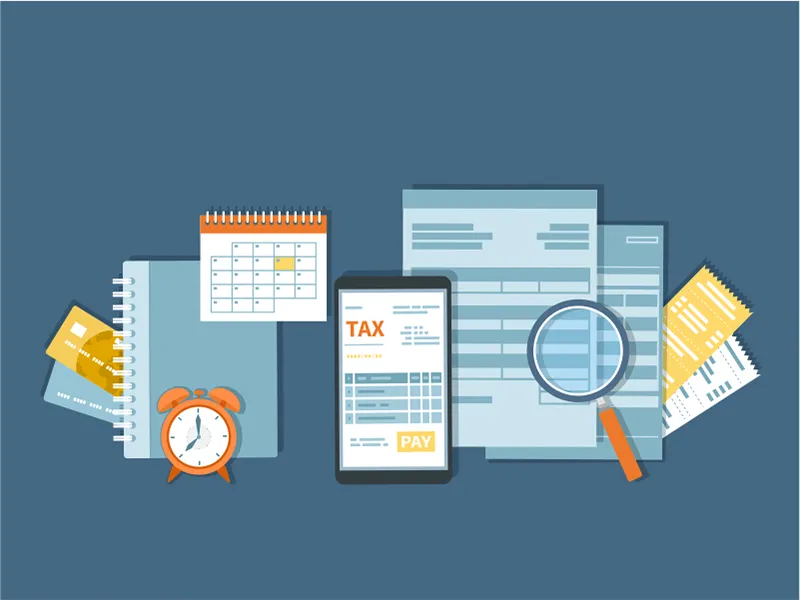
The much-awaited Union Budget 2022 was announced on February 1. This year’s budget, however, kept the income tax slabs unchanged while declaring a 2-year time frame for income taxpayers to file their returns. Finance Minister Nirmala Sitharaman, as part of her budget speech, said that the government’s objective will be to simplify the country’s tax system by promoting voluntary compliance by taxpayers, and minimal litigation. So, how do taxpayers in the country save income tax?
To save income tax and increase income, one must follow tax planning. The income tax act offers various deductions on investments apart from savings and expenditure in a given financial year. Here, we will highlight some of the ways in which one can easily save income tax.
How to save income tax using provisions of Sec 80C,80D and 80EE
Here are the details of deductions that can be claimed for saving income tax under each of the sections:
Section 80C of the Income tax act:
- An individual can make an investment of up to Rs 1.5 lakhs to reduce his/her taxable income.
- Additional deduction claim of Rs. 50,000 is allowed for investment made in NPS
What investment options are available under Sec 80C
Some of the popular tax-saving investment options that individuals and HUFs can use to claim a deduction under Section 80C of the Income Tax Act are mentioned in the table below:
| Investment | Lock-in Period | Indicative Returns |
| ELSS Funds | 3 years | 15% to 18% |
| National Pension System (NPS) | Till Retirement | 12% to 14% |
| Public Provident Fund (PPF) | 15 years | 7% to 8% |
| National Savings Certificate | 5 years | 7% to 8% |
| 5-Year Bank Fixed Deposit | 5 years | 6% to 7% |
| Sukanya Samriddhi Yojana (SSY) | N/A | 7.60% |
| Senior Citizen Saving Scheme (SCSS) | 5 years | 7.40% |
| Unit Linked Insurance Plan (ULIP) | 5 years | Varies as per plan |
Tips to plan tax-saving investments – Section 80C
Tax-saving through investments must be planned at the beginning of any financial year. Pushing the planning to later part of the year often results in hurried decisions. If, however, you plan at the start, your investments can help you save tax, multiply, and you can easily achieve your long-term goals. Here are some important tax-saving tips that can help in planning for a financial year and fully utilizing the 80C limit:
- Check for existing tax-saving expenses such as children’s tuition fees, EPF contribution, insurance premiums, home loan repayment, etc.
- Reduce this amount from the cap of Rs. 1.5 lakhs to estimate the amount you need to invest. In case the existing expenses are covering the limit, you need not invest for tax saving purposes.
- Opt for tax-saving investments as per your goals and personal risk profile. Options like PPF, ELSS funds, NPS and fixed deposits are often preferred by most investors.
Section 80D of the Income tax act:
- An individual can buy medical insurance and claim a maximum deduction of Rs. 1 lakh towards the same
- Senior citizens can claim Rs 50,000 for self and family
- Rs. 50,000 can be claimed additionally for senior citizen parents
Section 80EE of the Income tax act:
- An individual can claim deduction up to Rs. 50,000 on home loan interest payment
Additional tax saving options under Section 80
Apart from the above-mentioned deductions, one can also claim deductions under Section 80 for saving income tax. Listed here are some of them:
- Section 80D – Tax deduction towards payment of medical insurance premiums.
A maximum deduction of Rs. 25,000 for medical expenses for self, spouse or children can be claimed. The maximum limit for senior citizens is Rs. 50,000. If an individual has spent on behalf of his/her parents, then the maximum tax deduction is Rs. 25,000.
- Section 80GG: House rent
This section allows individuals living in a rented home to claim a tax deduction. This deduction is only allowed for those who are not salaried and who don’t get any House Rent Allowance (HRA) from their employers.
- Section 80G: Donations to charity
Up to 50 or 100% of an amount donated to a charitable trust can be claimed as a deduction under this section. The charities or trusts should be registered under Section 12A to qualify for the 80G certificate.
- Section 80D: Health insurance
Premiums paid towards personal health insurance can be claimed as a deduction under this section. One can claim up to Rs. 25,000 through this deduction.
- Section 80E: Education loans
Interest paid on education loans taken for higher education can be claimed as deduction.
- Section 80TTA: Interest on saving accounts
Interest earnings from saving accounts can be claimed as a deduction up to Rs. 10,000. Any amount beyond this is considered as taxable income.
Conclusion
Apart from the above-mentioned, salaried individuals can also consider selecting the right components within their salary structure to ensure maximum tax save. There are many provisions in the current tax laws that allow an individual to save tax through multiple channels. Individual taxpayers should make the most of these to ensure appropriate investment decisions combined with tax planning.
FAQs
The current income tax slab that is exempted from tax is any amount below Rs. 2,50,000. This means you need not plan your investments only for tax-planning purposes. However, it is important to plan your investments to maximize returns.
Certain categories of mutual funds like Equity Linked Saving Schemes or ELSS are one of the beneficial ways of investing in mutual funds with an intent to save tax.
Some of the ways in which you can save income tax without making an investment include taking a home loan, claiming deductions for medical expenses, deductions for children’s tuition fees, increasing EPF contributions through voluntary provident fund scheme, and by claiming a deduction for rent payments.
You can plan your investment in capital assets such that they are held for at least 3 years and reinvested to maximize savings on capital gains tax.
The maximum amount you can save on income tax depends on your income level, investment portfolio, and how you optimize the income tax deductions available.

























